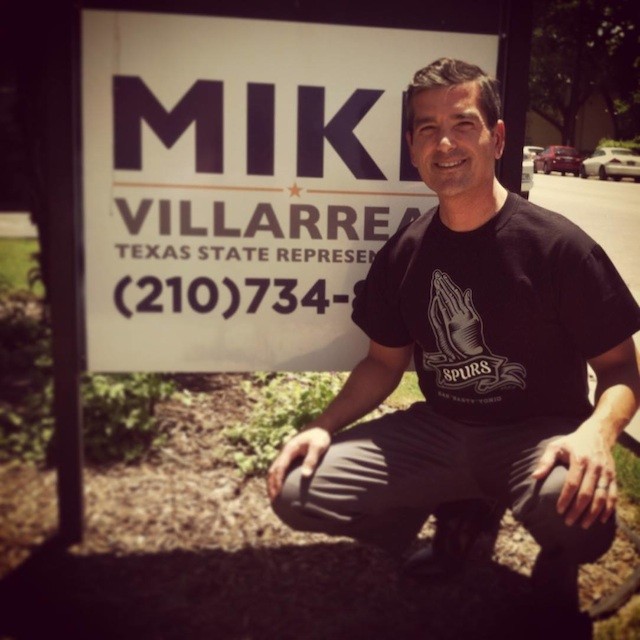Earlier this month, mayoral front-runner Mike Villarreal clarified that he would not resign from his House District 123 seat before the November 4 general election. Instead, he’ll step down some time between then and the start of the 2015 legislative session, which begins January 13.
Villarreal’s move sets the stage for a special election, allowing the nearly 89,000 registered voters in his district to decide who will represent them next. And it cuts short an increasingly political and dubious alternative: allowing a handful of local Democratic precinct chairs to handpick his replacement for the November ballot, where the eight-term Democrat is running unopposed.
When a legislator resigns 60 or fewer days prior to the beginning of a legislative session, the governor has 20 days to schedule an election for no later than 45 days after he makes the announcement. If Gov. Perry waits, the election could fall anywhere between the holiday season and mid-January.
Whenever Villarreal resigns, the ball will then be in Perry’s court. That makes Bexar County Democratic Party Chairman Manuel Medina nervous.
“Rick Perry has a history with playing partisan because of low turnout,” Medina said, citing a 2008 example when Perry called a special election on a religious holiday important to Catholic Latinos, who traditionally vote Democrat.
A special election does create the possibility that a Republican candidate will also run, but the likelihood of success in such a solidly Democratic House seat seems nil. Since he joined the House via a special election in 2000, Villarreal has won reelection seven times by more than 50 percent of the vote.
Did Villarreal make the right call?
This way, voters will choose his successor, and the drama and politicking surrounding the role of the precinct chairs in the ballot process seems to be dissolving in the wake of his decision.
But more democracy is more expensive—at least in the short term. The San Antonio Express-News called on Villarreal to resign before August 21, citing the cost of a special election, which could run from $80,000 to $100,000.
“I share their concern about being a steward of tax dollars and giving proper weight to the cost of this election; however, that’s not the only cost to consider,” Villarreal said. This legislature will be responsible for redesigning the school finance system. “If we have the wrong person there fighting for us, it may cost our community hundreds of millions of dollars. I want to get it right.”


